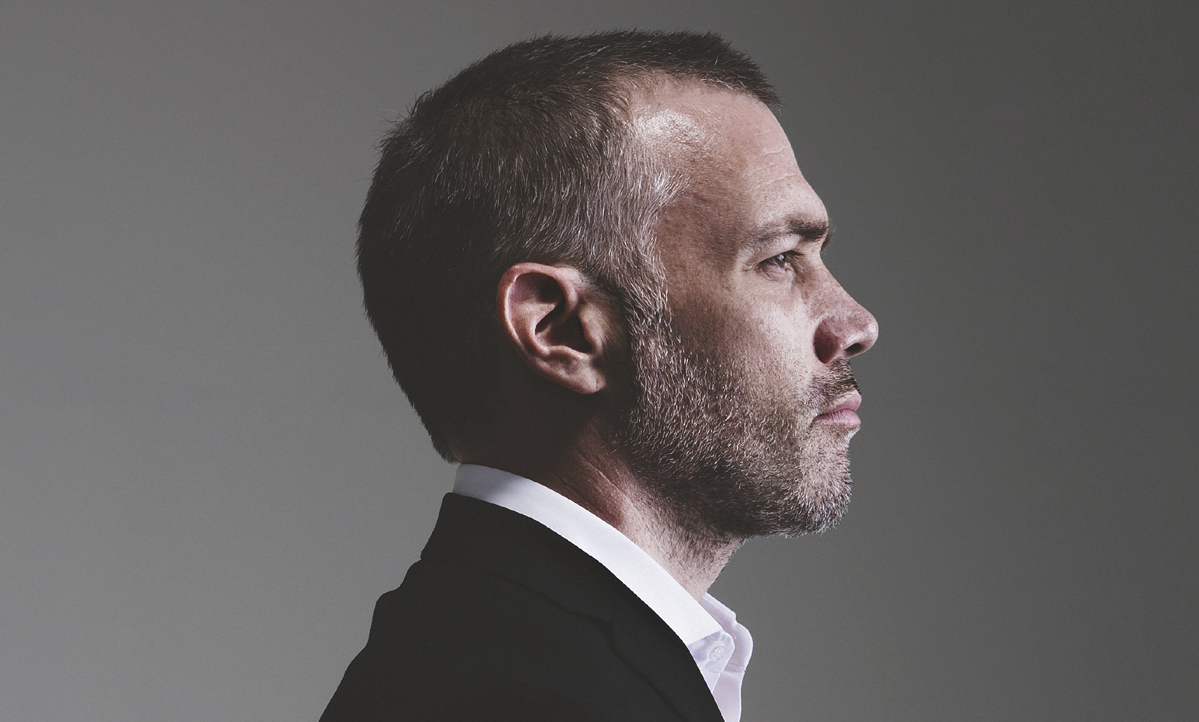Interview: Buck 65 Battles Back from Divorce
Divorce isn’t easy on anyone. It pulls everyone involved into painfully different directions, including down and out. For some, it’s  the ultimate failure. For some, it’s a life lesson. For some, it’s an opportunity to improve. For Buck 65, it’s all of the above.
the ultimate failure. For some, it’s a life lesson. For some, it’s an opportunity to improve. For Buck 65, it’s all of the above.
When word got out earlier this year that celebrated alternative hip-hop artist Buck 65 (known offstage as Richard Terfry) was returning with a new album, one thing was made astoundingly clear: it would be about his recent divorce.
Released on September, Neverlove serves as Terfry’s open-door, 13-song therapy session that sees him evaluate what went wrong, what’s next, and who he really is now.
When speaking with Riffyou.com, the always-cordial Terfry says that letting the public know that Neverlove is a divorce album was a hard, yet necessary choice to make. He and his manager came to the realization that the album would need to be discussed with fans and the press, as its title and subject matter very easily lend themselves to dialogue. It was a long debate.
“You just have to stand by it and take responsibility for it,” responds Terfry when asked why he did eventually decide to make the album’s concept known. “I know people choose not to do that, but as a music fan, I’ve never liked that. If I hear a record and I’m moved by it, I want to hear what the musician says about it. But when the musician says ‘that question’s too personal,’ that’s disappointing for me. I didn’t want to be the next person to do that.”
Terfry adds that putting himself in the shoes of a music fan looking from the outside, in, helped push him toward being brutally honest. Divorce, breakups and all that those situations entail are relatable to many, if not all listeners. As Terfry puts it, the aftermath of his divorce was “a discussion worth having.”
When approaching Neverlove, Terfry explains that he had to really get real with those in the studio. He sat everyone down and opened up about what this album had to be about and the feel that it needed. It was necessary to get everyone in the same headspace.
“When you’re confronted by a really difficult thing in your life, you’re faced with a choice: you can runaway from it, or you can face it, confront it, and work through it,” offers Terfry after admitting that it was tough to write what became Neverlove. “But to work through it, sometimes feels like holding your own head below water when you’re already drowning. Your natural instinct when drowning is to get back up to the surface and give yourself some relief from that terrible situation…you just want to breathe again.”
Terfry was dead set on figuring himself out. He believed that the alternative to staring down the demons wouldn’t have ended well. He didn’t want such a difficult life experience to encounter him once again, and thus had to take advantage of the fact that he had an outlet for his situation.
“An interesting thing happened,” confides Terfry. “When I did the hardest work and wrote the toughest, most difficult songs, I’d wake up the next day after finishing [one of them], and it felt like a real load had been lifted off of me. I’m glad I did [this album].  It’s hard to put into words.”
It’s hard to put into words.”
Apart from giving him an album that, while dark in subject matter, is an excellent and engaging listen, Neverlove has provided Terfry with the opportunity to understand his priorities better moving forward: he certainly knows what he doesn’t want anymore.
When it comes to love, even though Terfry has been on a few dates here and there, he’s admittedly not ready to fully jump back into the pond. And even though his faith in love isn’t completely down and out, he certainly views it differently now.
“Yeah, [the divorce] taught me a lot about myself,” says Terfry. “In the end, what I realized was that when you get married, it’s one of the biggest decisions anyone might make in their life. You’re going all-in on something and taking a big shot. When one of your biggest shots in your life fails, it’s a real tough blow. [You think] ‘That failed. I got married and it didn’t work out.’ I had to figure out why that was the case and what it all meant.”
-Adam Grant
Please be sure to follow us on Twitter @riffyou and at Facebook.com/riffyou.

































